42 reading nutrition facts labels
3 Ways to Read Nutrition Facts on Food Labels - wikiHow Life 4. Aim to consume under 60% of your daily value in sodium. 20% of your daily value in sodium (per serving) is considered high. This means that with 3 meals in a day, you should keep your sodium intake under 60%. If you can't, try to avoid exceeding 100% of your daily value (2,300 milligrams). How to Read Nutrition Facts | Food Labels Made Easy - YouTube Finally, on some labels you will see the calories per gram for each macronutrient. Fat contains 9 grams per serving and Carbohydrates and Proteins contain 4. So for every 10 grams of fat, you will...
Your Guide to the New Food Label | National Kidney Foundation The Nutrition Facts Label helps you understand the nutrients a food product contains, and the Nutrition Facts Table lists all the items required by the law. Food labels have percent daily values listed for a set group of nutrients based on the Food and Drug Administration (FDA) recommended 2000 calorie diet. You may need more or fewer calories, so check with your …
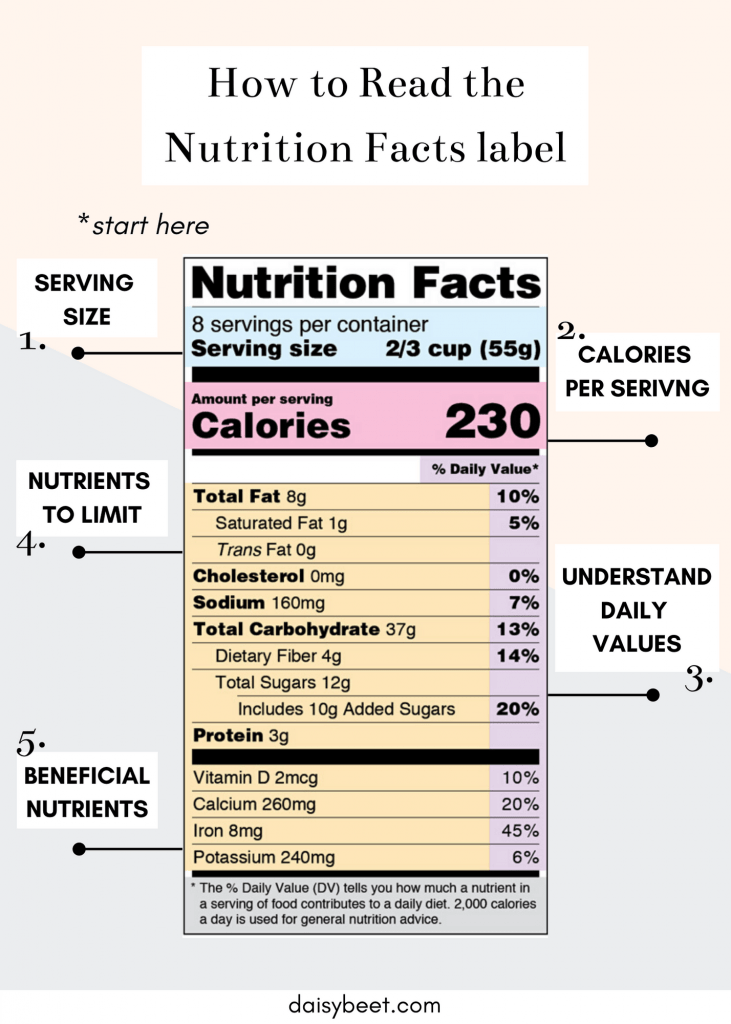
Reading nutrition facts labels
› food › new-nutrition-facts-labelHow to Understand and Use the Nutrition Facts Label | FDA When looking at the Nutrition Facts label, first take a look at the number of servings in the package (servings per container) and the serving size. Serving sizes are standardized to make it easier... Food Labels | CDC - Centers for Disease Control and Prevention If you eat the whole thing, you are eating 8 times the amount of calories, carbs, fat, etc., shown on the label. Total Carbohydrate shows you types of carbs in the food, including sugar and fiber. Choose foods with more fiber, vitamins, and minerals. Choose foods with lower calories, saturated fat, sodium, and added sugars. Avoid trans fat. How to Read a Nutrition Facts Label - The Family Meal Project 100 calories per serving is considered moderate400 calories per serving is considered high. 3. Look at the nutrition terms: The nutrition terms on the label are there to tell you more about some of the nutrients in the food item you are looking at. Calorie Free - less than 5 calories per serving. Low Calorie - 40 calories or less per serving.
Reading nutrition facts labels. The Basics of the Nutrition Facts Label - Academy of Nutrition … 04.03.2022 · The following is a quick guide to reading the Nutrition Facts label. Step 1: Start with the Serving Size. Look here for both the serving size (the amount people typically eat at one time) and the number of servings in the package. Compare your portion size (the amount you actually eat) to the serving size listed on the panel. The Nutrition ... Sodium on the Nutrition Facts Label | FDA The Nutrition Facts Label is a handy tool you can use every day to see the amount of sodium in packaged foods and beverages and make informed dietary choices. FDA's education materials show you how! How to read nutrition labels | Roswell Park Comprehensive Cancer Center ... If a serving of food provides 20% DV or more of a nutrient, that food is considered high in that nutrient. Footnote. The footnote is used to help explain the Percent Daily Values. Changes to the nutrition facts label. You may have noticed some slight changes to the nutrition facts labels on products over the past few years. Is Sodium the Same Thing as Salt? - Academy of Nutrition and … 08.08.2019 · The best way to learn how much sodium is in particular foods is by reading the Nutrition Facts label: On the label, look for foods that are lower in sodium. Choose foods with less than 120 milligrams of sodium per serving. Look for the words salt-free, sodium-free, very low sodium and low sodium on the label. Double-check sodium content of foods with labels that …
How to Read Nutrition Facts Label - Food Network This carries over to all the other nutrients on the label. If 1 serving of a food has 120 mg of sodium, it can technically be labeled as a "low sodium" food. However, if you eat 3 servings, triple... The New Nutrition Facts Label | FDA Visit the Interactive Nutrition Facts Label to explore the label, from top to bottom. This tool provides a detailed look at all the information listed on the Nutrition Facts label, helpful tips for... Learn How the Nutrition Facts Label Can Help You Improve Your Health Read the Nutrition Facts labels on your packaged food and drinks to keep track of sugars, fats, protein, and other nutrients. Most sodium we consume is from salt, and salt is commonly in processed foods. Read labels and choose the product with less sodium. Drink plain water instead of sugary beverages. A Real Person's Guide To Reading Nutrition Labels Nutrition labels are not entirely user-friendly, which is why many people don't read them correctly. Certain terms, values, or serving sizes may be unrecognizable, especially if you don't know what you're looking for. One could argue that deciphering a nutrition label is like trying to make sense of a college calculus textbook. You don ...
How to Understand and Use the Nutrition Facts Label | FDA 25.02.2022 · Many Nutrition Facts labels on the market will be formatted in the same way as the lasagna label that has been used as an example throughout this page, but there are other formats of the label ... Reading Food Labels | ADA - American Diabetes Association The Nutrition Facts labels on foods are really the key to making the best choices. We'll cover the basics so that these labels make shopping easier for you. Get started Understanding Carbs You've heard it all. From carb-free to low-carb, to whole and empty carbs, it's hard to know what it all means. Learn more Food & Blood Sugar How to Read a Nutrition Label: Tips from a Registered Dietitian Currently, the nutrition facts label is based on an average diet of 2,000 calories per day. "You may need more or less than 2,000 calories per day based on your specific energy needs and activity level," McInerney says. Your primary care provider or a registered dietitian can help you determine the number of daily calories that are best for you. › en › healthy-livingUnderstanding Ingredients on Food Labels | American Heart ... Mar 06, 2017 · The Nutrition Facts information is always displayed in the same orderly fashion and helps you understand how much of certain nutrients that you need to limit are contained in the product per serving. What isn’t always so clear is the ingredients listed on foods or drinks.
PDF MOVE! Nutrition Handout N10: How to Read a Nutrition Facts Label size" is the official term used on food labels. Nutrition facts given on the food label are based on one serving. Be sure to look at the number of servings in the container. Even small containers may have more than one serving. If you eat the whole container, then you must multiply the nutrition values by the number of servings in the ...
Nutrition Labelling - Canada.ca Nutrition labelling became mandatory for all prepackaged foods on December 12, 2007. This means that all food companies have to include nutrition labelling on their prepackaged foods. Did you know that Health Canada is consulting on proposed nutrition labelling changes?.
How To Read Nutrition Labels - Mayo Clinic Diet All the nutrition info — including calories — refer to the amount in one serving. 2. Check the calories in one serving 40 calories is low, 100 calories is moderate, 400 calories or more is high. Remember: If you eat multiple servings, you'll need to multiply the calories by the number of serving that you eat. 3. Check the % Daily Value
› atoz › contentYour Guide to the New Food Label | National Kidney Foundation The Nutrition Facts Label helps you understand the nutrients a food product contains, and the Nutrition Facts Table lists all the items required by the law. Food labels have percent daily values listed for a set group of nutrients based on the Food and Drug Administration (FDA) recommended 2000 calorie diet.
How To Read Food and Beverage Labels - National Institute on Aging How to read the Nutrition Facts label The U.S. Food and Drug Administration (FDA) requires a Nutrition Facts label on most packaged foods and beverages. At the top of the Nutrition Facts label, you will find the total number of servings in the container and the food or beverage's serving size.
How to read nutrition facts on food labels? The Nutrition Facts label's Percent Daily Value (DV) is a guide to the nutrients in one serving of food. For example, if the label says 15% calcium, it implies that one serving delivers 15% of your daily calcium requirement. The Daily Values (DVs) are calculated using a 2,000-calorie diet for healthy people.
dtc.ucsf.edu › learning-to-read-labelsLearning To Read Labels :: Diabetes Education Online Nutrition Facts labels list a breakdown of the total carbohydrate from dietary fiber, sugars and sugar alcohols. This can be confusing. On Nutrition Facts food labels, the grams of dietary fiber are already included in the total carbohydrate count, but because fiber is a type of carbohydrate that your body can’t digest, the fiber does not ...
› food › nutritionThe Basics of the Nutrition Facts Label Mar 04, 2022 · The following is a quick guide to reading the Nutrition Facts label. Step 1: Start with the Serving Size. Look here for both the serving size (the amount people typically eat at one time) and the number of servings in the package. Compare your portion size (the amount you actually eat) to the serving size listed on the panel.
6 Tips for Reading Nutrition Facts Labels - Ask The Scientists Check the Sugar and Find the Fiber. Fats aren't the only macronutrient that requires extra investigation. When you're reading nutrition facts labels, look at carbohydrates, but also note the sugar and fiber amount. Sugar is a simple carbohydrate. It has well-established ties to weight gain and can hide in foods that seem healthy.
Top 10 Raisins Nutrition facts and Health benefits Raisins Nutrition facts. Raisins are dried grapes/currants. However, unlike fresh grapes, they indeed rich and concentrated sources of energy, vitamins, electrolytes, and minerals.On a weight per weight comparison basis, 100 g of dried grapes hold 249 calories, several times more fiber, vitamins, minerals and polyphenol antioxidants than the fresh grapes.
Understanding Food Labels | The Nutrition Source | Harvard … These graphics promote a perception of healthfulness, which can be misleading if consumers rely only on these images without reading the Nutrition Facts panel for complete information. The FDA does not closely monitor these FOP graphics. Because research has shown that “positive” FOP labels like health stamps or checkmarks can overrate a food’s healthfulness, public …
Quick Tips for Reading the Nutrition Facts Label - Food and Drug ... Quick Tips for Reading the Nutrition Facts Label Use Percent Daily Value (%DV) as a guide. The %DV shows how much a nutrient in a serving of the food contributes to a total daily diet. As a general...
Learning To Read Labels :: Diabetes Education Online Nutrition Facts labels list a breakdown of the total carbohydrate from dietary fiber, sugars and sugar alcohols. This can be confusing. This can be confusing. On Nutrition Facts food labels, the grams of dietary fiber are already included in the total carbohydrate count, but because fiber is a type of carbohydrate that your body can’t digest, the fiber does not increase your blood sugar …
Nutrition Facts Labels - How to Read - For Kids - Dr. Smarty Nutrition Facts Labels - How to Read - For Kids - Animation for American Nutrition facts labels explained.
Read the Label Youth Outreach Materials | FDA - U.S. Food and Drug ... Read the Label Youth Outreach materials challenge kids (ages 9 to 13) to look for and use the Nutrition Facts label on food and beverage packages. The materials include fun, easy tips and targeted...
Understanding Ingredients on Food Labels - American Heart … 06.03.2017 · The Nutrition Facts information is always displayed in the same orderly fashion and helps you understand how much of certain nutrients that you need to limit are contained in the product per serving. What isn’t always so clear is the ingredients listed on foods or drinks.
How to Read Nutrition Facts Labels - Action for Healthy Kids Choosing foods that have smaller percentage Daily Value for saturated fat, added sugars and sodium. A small percentage or low amount of a specific nutrient is considered 5% DV or less. Choosing foods that have higher percentage Daily Value for vitamins, minerals and fiber. A higher percentage of a specific nutrient is considered 20% DV or more.
How to Use the Nutrition Fact Label, Eat Right, NHLBI, NIH When using the Nutrition Facts label as a guide, try these tips: Keep these low: saturated fats, trans fats, cholesterol, and sodium. Get enough of these: potassium, fiber, vitamins A and C, calcium, and iron. Use the Percent Daily Value (% DV) column when possible; 5% DV or less is low, 20% DV or more is high. Visit the Smart Food Shopping ...
How to Read a Nutrition Facts Label | Everyday Health How to Read a Nutrition Facts Label First, know that, as the label itself states, the included nutritional info is based on a 2,000-calorie-a-day diet. Your personal nutritional needs may vary,...
Understanding Food Nutrition Labels | American Heart Association Learn what to look for on the label. 1 - Start with the serving information at the top. This will tell you the size of a single serving and the total number of servings per container (package). 2 - Next, check total calories per serving and container.
What’s New with the Nutrition Facts Label | FDA 25.02.2022 · FDA has updated the Nutrition Facts label on packaged foods and drinks. The refreshed design and updated information will make it easier for you to make informed food choices that contribute to ...
Food label reading guide | Nutrition Australia What to look for when reading food and drink labels (per 100g) Health Star Ratings The Health Star Rating is a front of pack labelling scheme which can be used to make healthier food choices at a glance. The rating range is from ½ - 5 stars and the more stars, the healthier the choice. Recommended minimum star ratings for food and drink categories
› food › new-nutrition-facts-labelDaily Value on the New Nutrition and Supplement Facts Labels Feb 25, 2022 · The Nutrition and Supplement Facts labels ... is a handy reference guide for all the Daily Values that have been updated on the new Nutrition Facts and Supplement Facts labels. Continue reading to ...
› nutrition › how-to-readHow to Read Supplement Labels Like a Pro - Healthline Jul 15, 2020 · When selecting a supplement, reading the ingredient label is key. Check carefully for ingredients like fillers, sweeteners, preservatives, and additives, all of which will be listed on the label.
How to Read a Nutrition Facts Label - The Family Meal Project 100 calories per serving is considered moderate400 calories per serving is considered high. 3. Look at the nutrition terms: The nutrition terms on the label are there to tell you more about some of the nutrients in the food item you are looking at. Calorie Free - less than 5 calories per serving. Low Calorie - 40 calories or less per serving.
Food Labels | CDC - Centers for Disease Control and Prevention If you eat the whole thing, you are eating 8 times the amount of calories, carbs, fat, etc., shown on the label. Total Carbohydrate shows you types of carbs in the food, including sugar and fiber. Choose foods with more fiber, vitamins, and minerals. Choose foods with lower calories, saturated fat, sodium, and added sugars. Avoid trans fat.
› food › new-nutrition-facts-labelHow to Understand and Use the Nutrition Facts Label | FDA When looking at the Nutrition Facts label, first take a look at the number of servings in the package (servings per container) and the serving size. Serving sizes are standardized to make it easier...
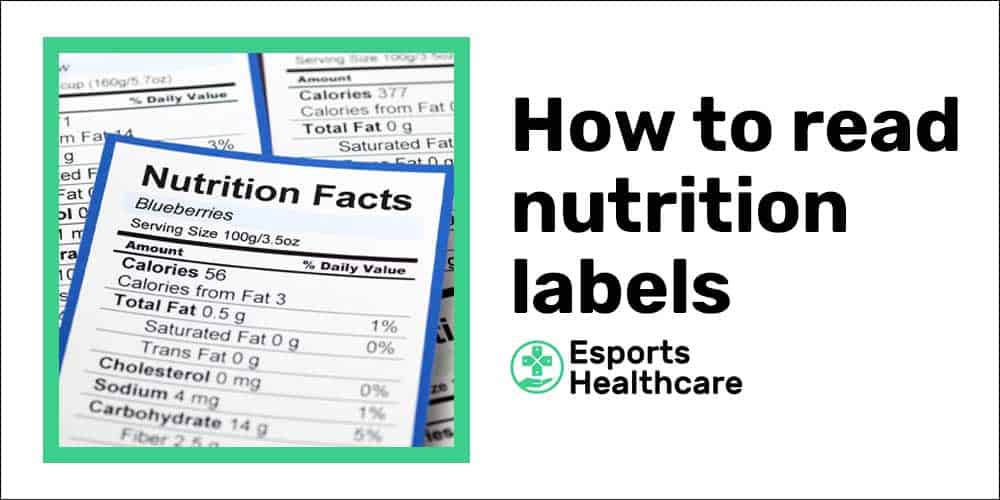


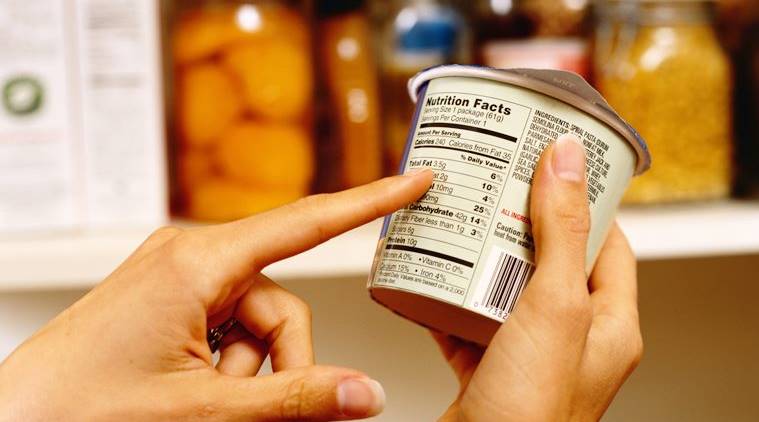


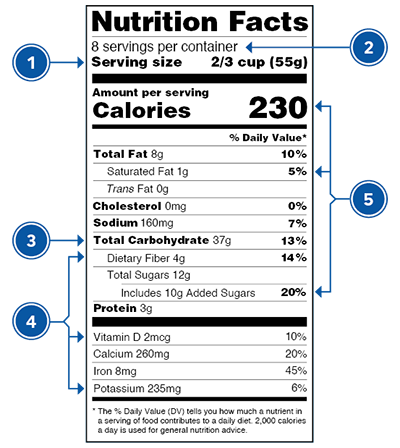

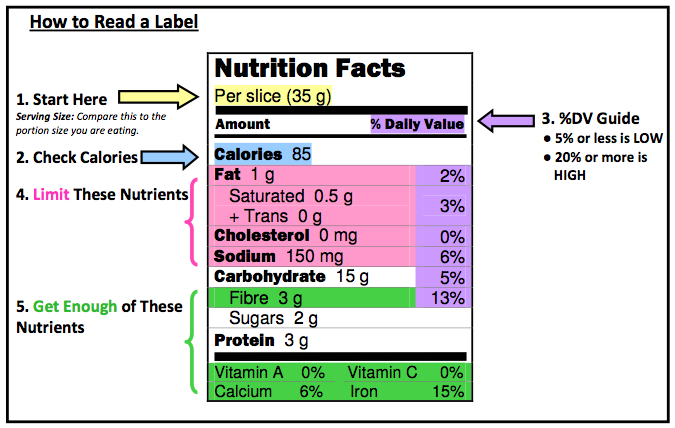
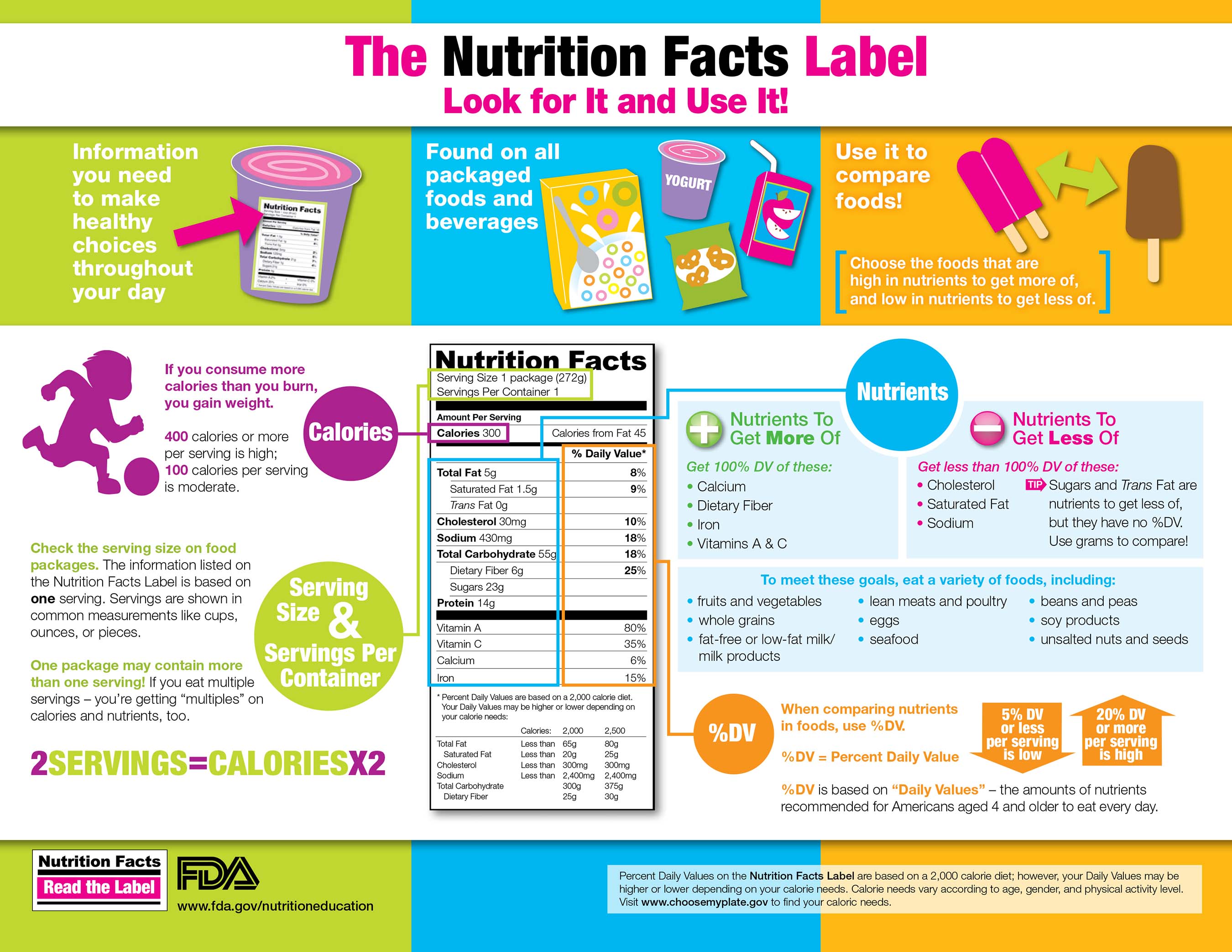

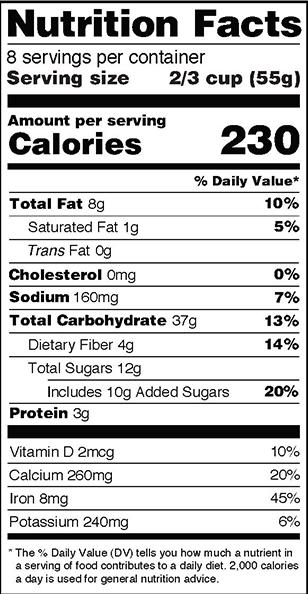
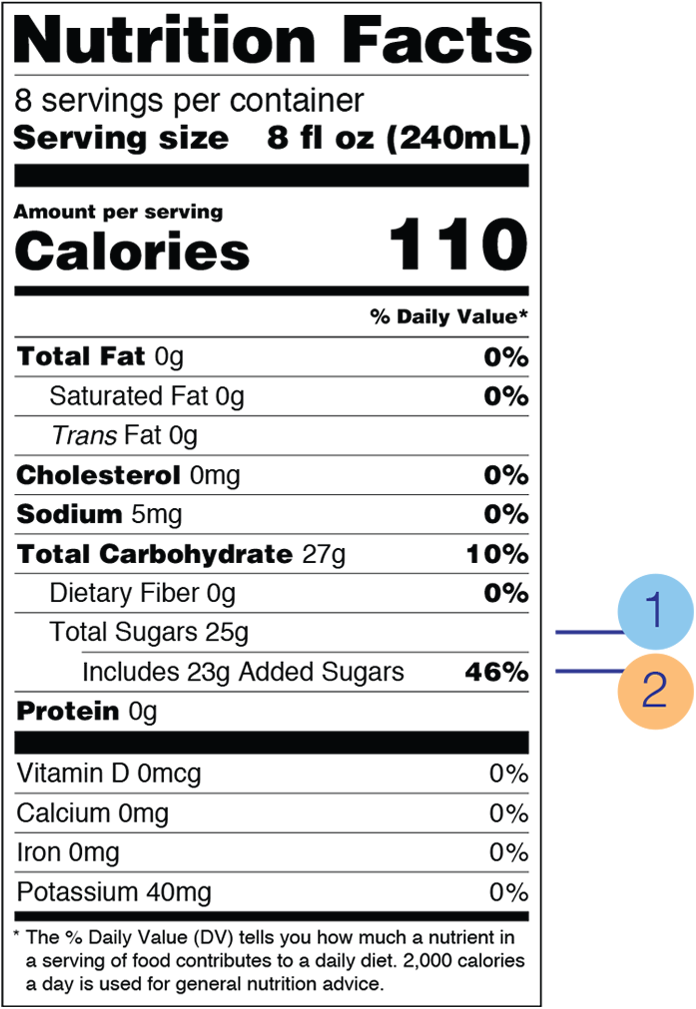
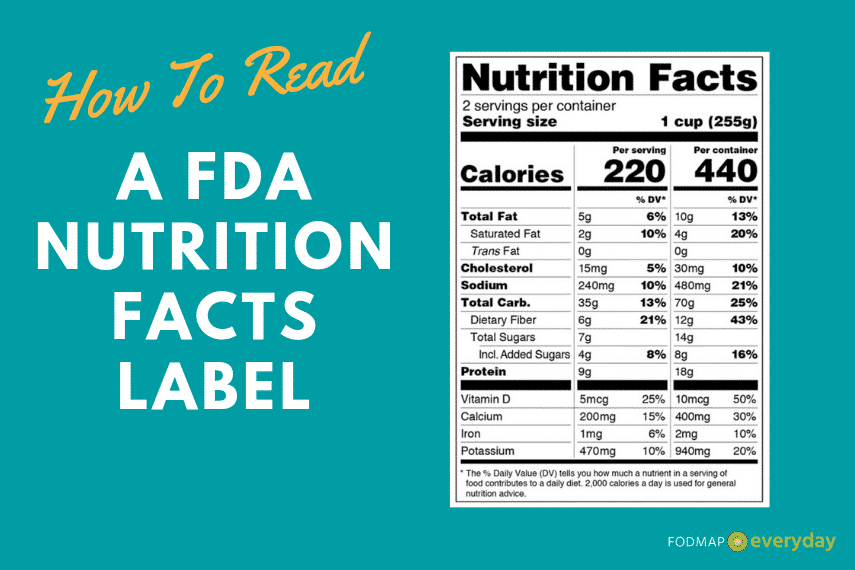
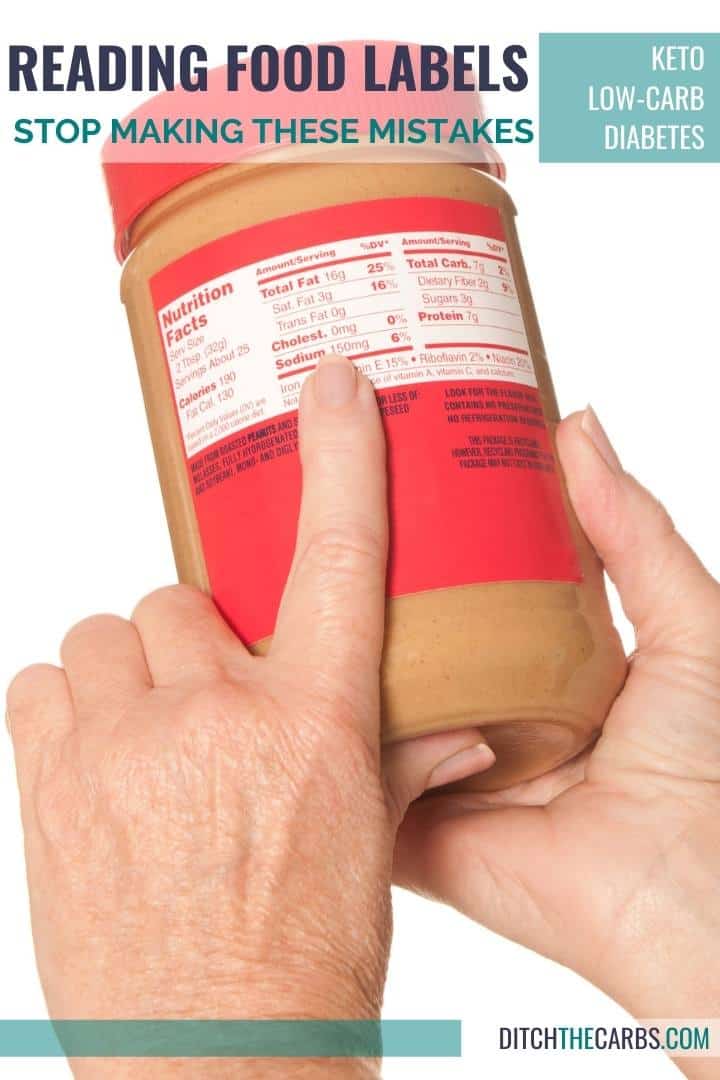

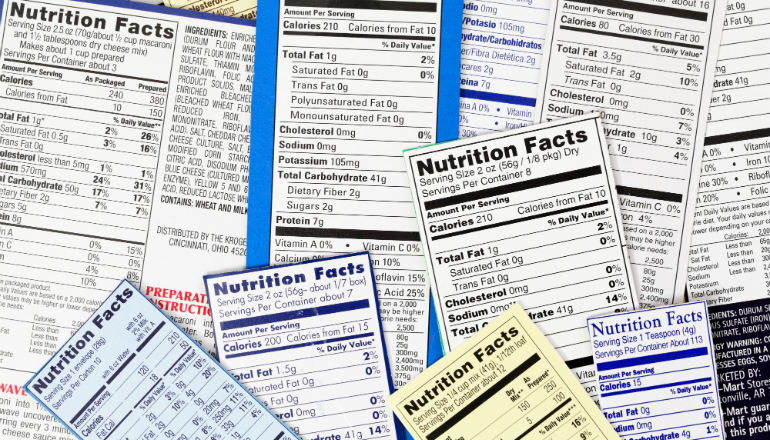
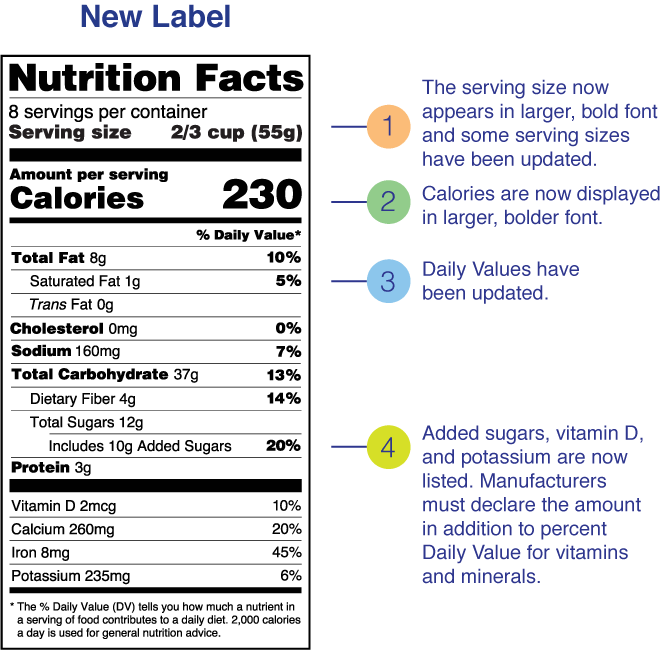

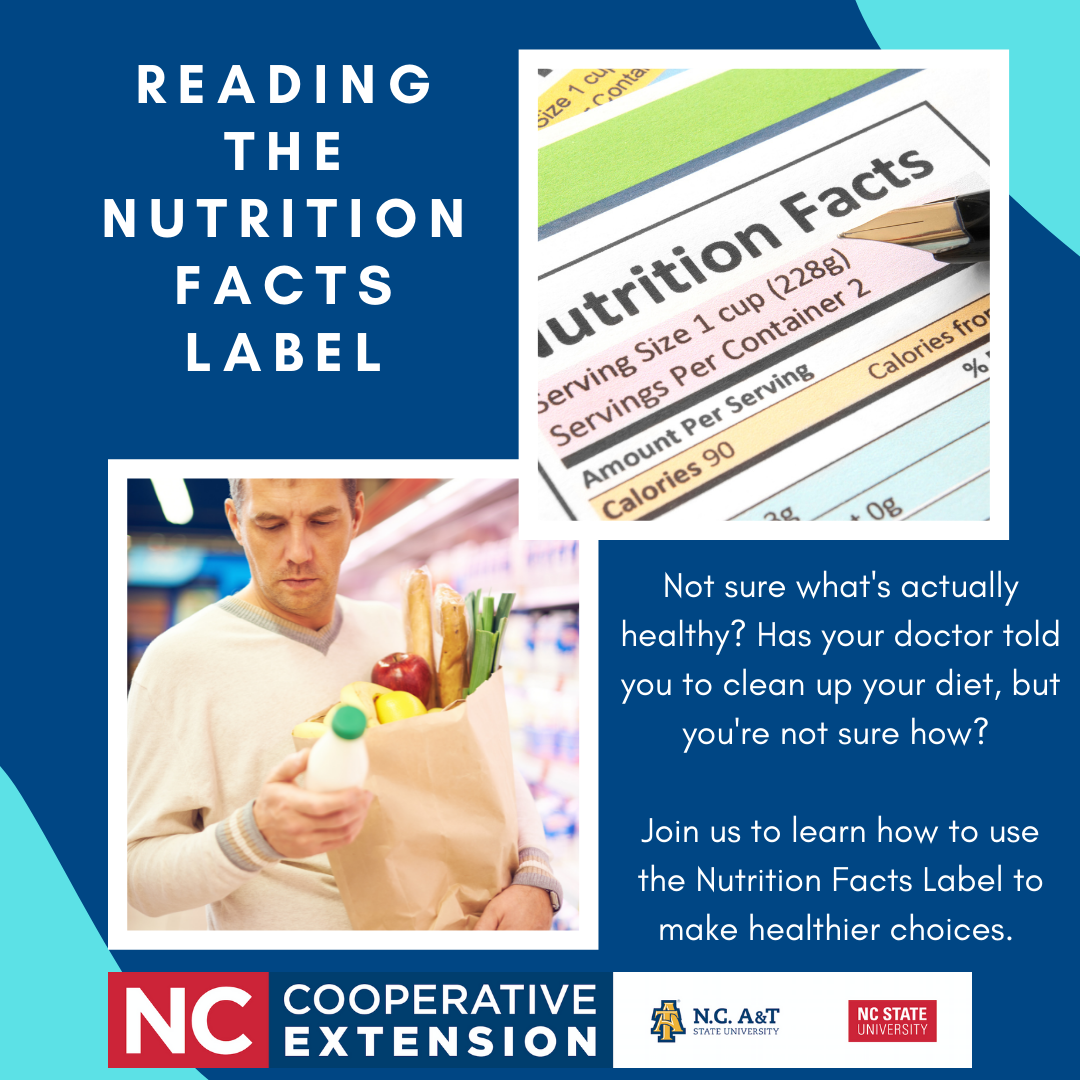
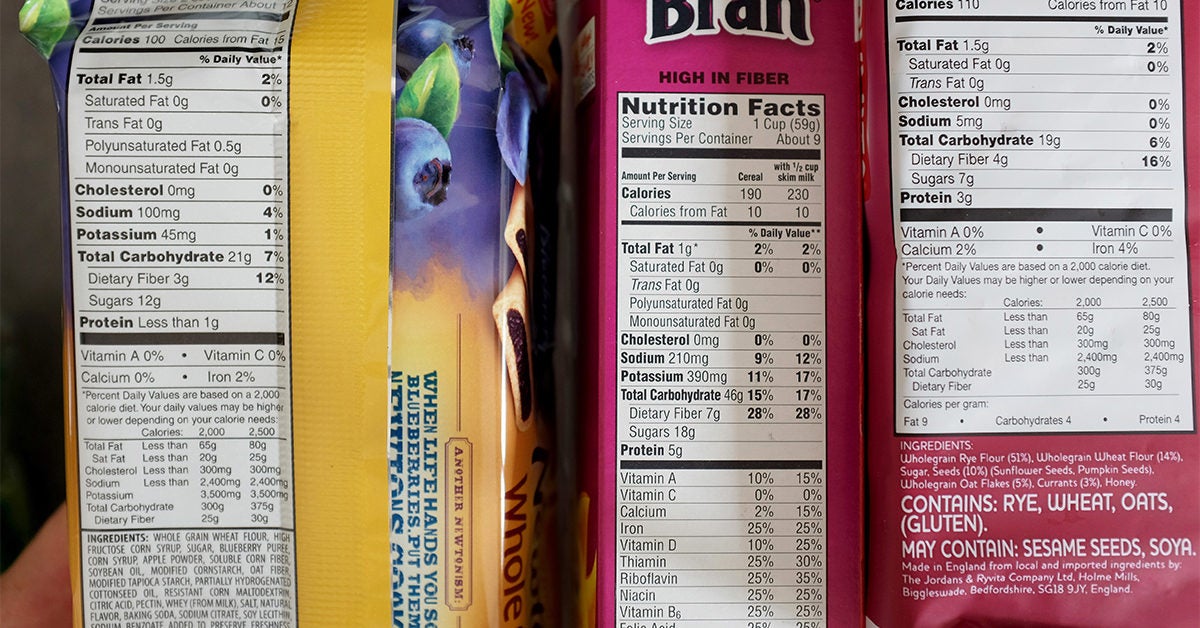

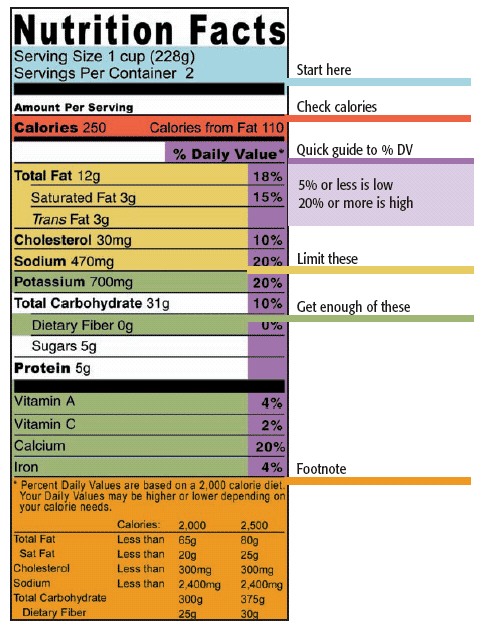
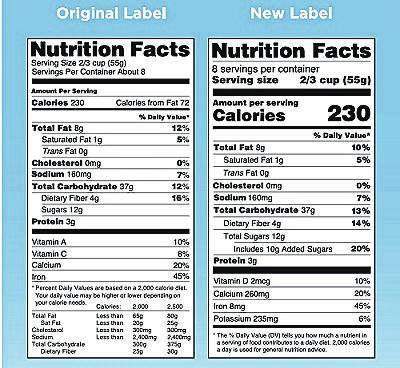


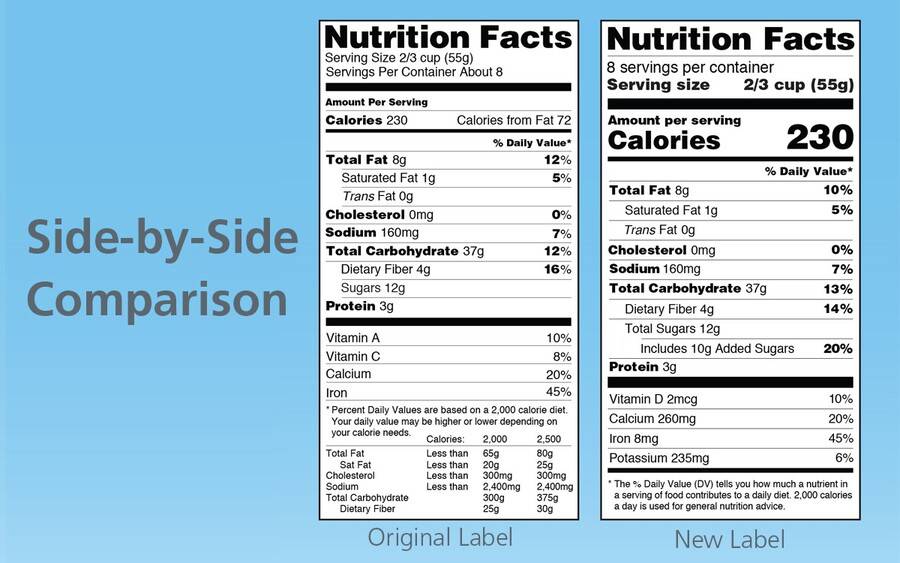
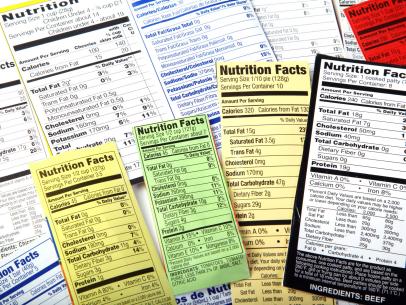
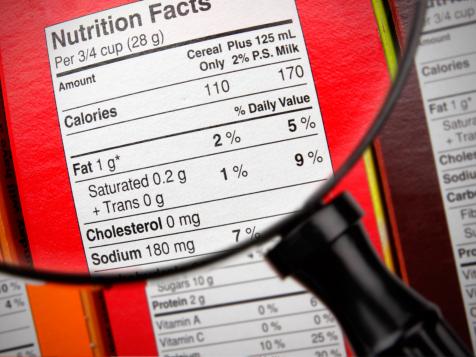


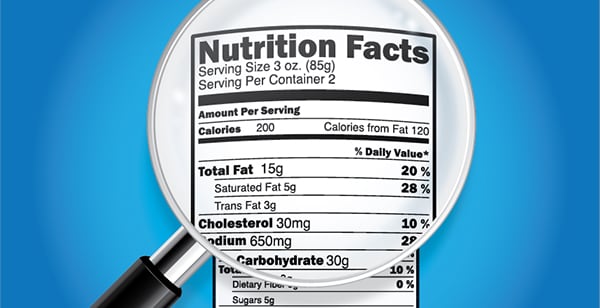

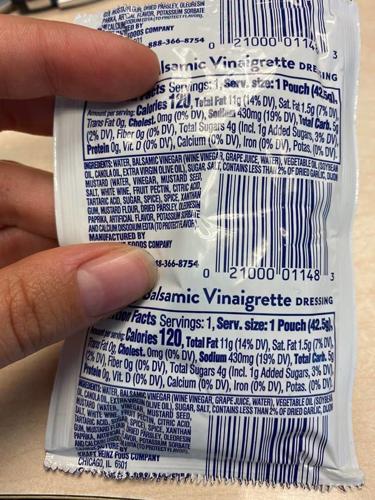

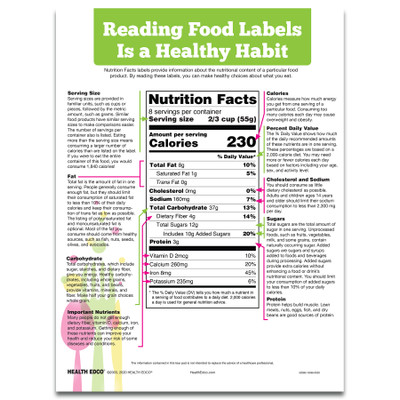

Post a Comment for "42 reading nutrition facts labels"